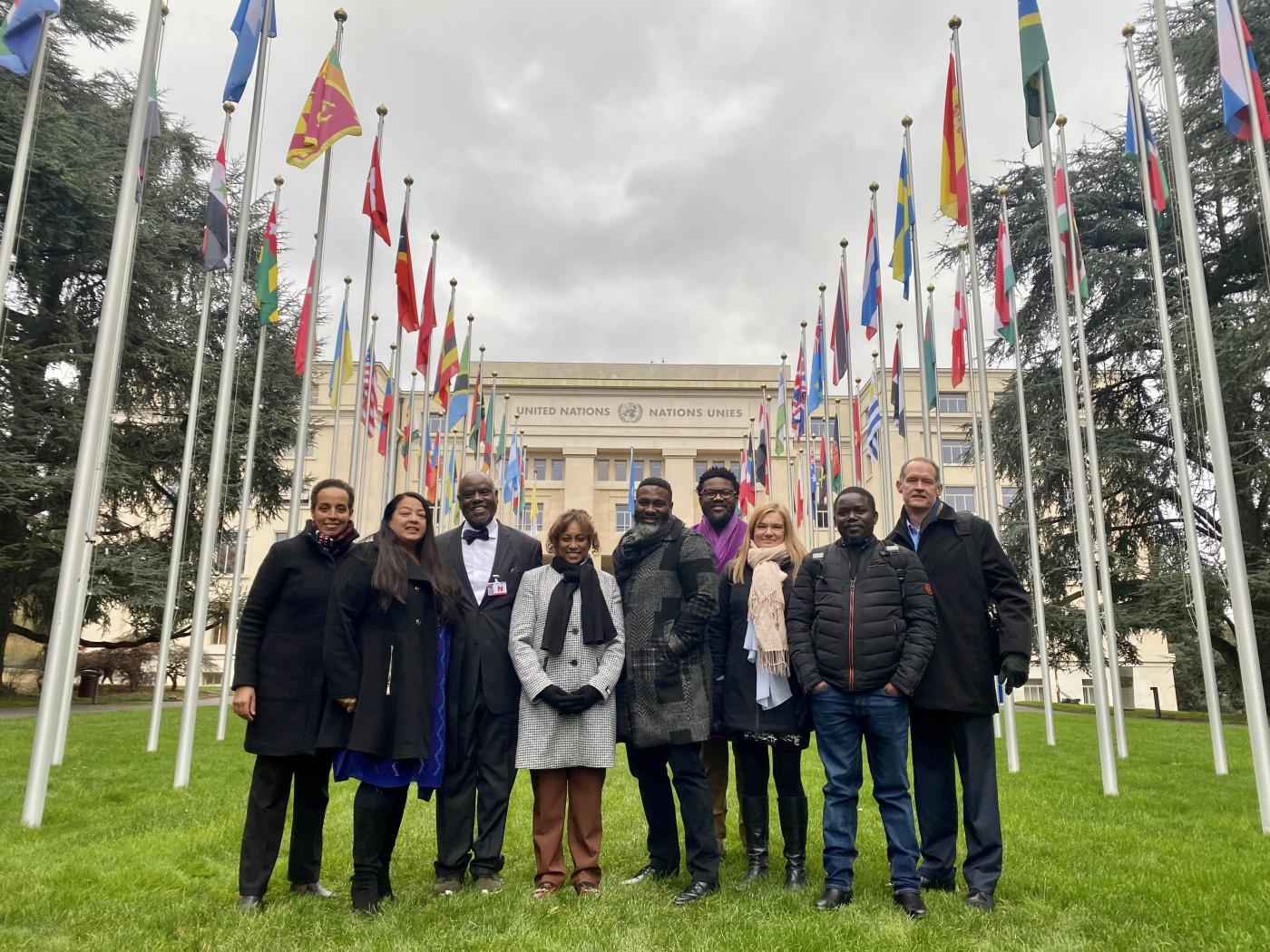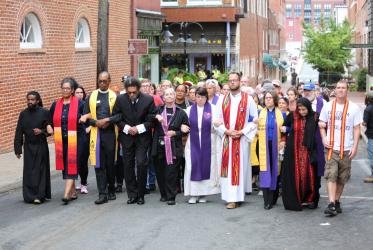Several church members from around the world, including from South Africa, Solomon Islands, Cameroon, the Netherlands and USA, attended online and sent their comments and statements to the forum.
Throughout the four days of its meetings, the forum continuously acknowledged the intersectionalities between the climate crisis, poverty, disability, racism, the Sustainable Development Goals (SDGs), food justice and gender inequalities and has called for a holistic approach to addressing the aspirations and vision of people of African descent. There was also recognition and appreciation for the work of faith-based organizations like the World Council of Churches (WCC) in standing with people of African descent.
On the margins of the forum, the ecumenical group had private meetings with UN leaders to raise issues of concern in relation to racial justice and affirm the ecumenical movement’s readiness to collaborate in future work.
Rev. Dr Angelique Walker-Smith, WCC president from North America, reflected on the importance of accompanying all UN mechanisms towards the eradication of racism, xenophobia, and related discriminations.
“It is indeed my honor to speak at this moment at this amazing historic Permanent Forum for People of African Descent,” said Walker-Smith. “I would offer to you that much more needs to be said and done. In this regard, the World Council of Churches has since its inception been partnering with the United Nations.The subsequent UN landmark moment in 31 August to 8 September 2001 in Durban Africa with Member States of the United Nations at the World Conference against Racism, Racial Discrimination, Xenophobia and Related Intolerance, held in South Africa, led to the Durban Declaration and Programme of Action - DDPA which became a foundation for a way forward with this Forum.”
Presenting a message, Michael R. Fisher Jr, from United Church of Christ, noted: “Recognising that people of African descent around the world are not a homogenous group, and keeping in mind the UN 2030 Agenda for Sustainable Development, the Permanent Forum should use an intersectional human-rights-based approach,” by using disaggregated data that will help develop tailored policies that recognize and respect diversity, making sure that “no one is left behind.”
On reparatory justice, the aforementioned ecumenical message at the WCC 11th Assembly recalled the pilgrimage of justice, reconciliation and unity,in which restorative justice will be an important component. “Social reconciliation is only possible if there is an end to impunity,” urged the message.







